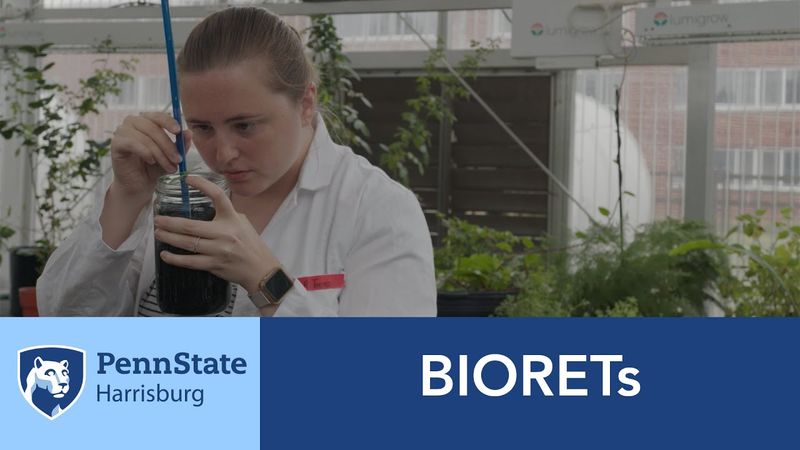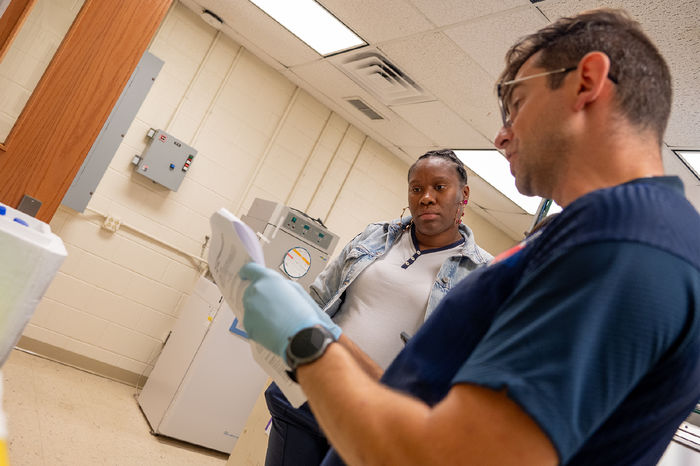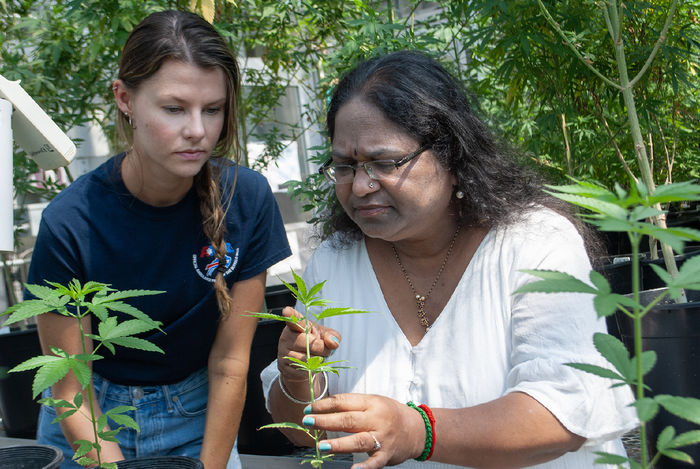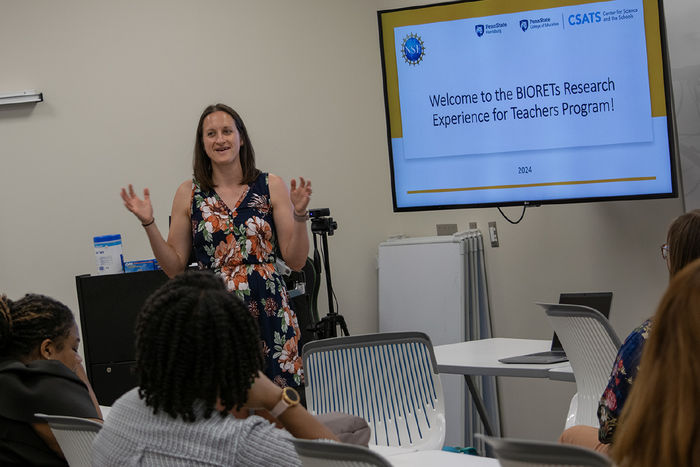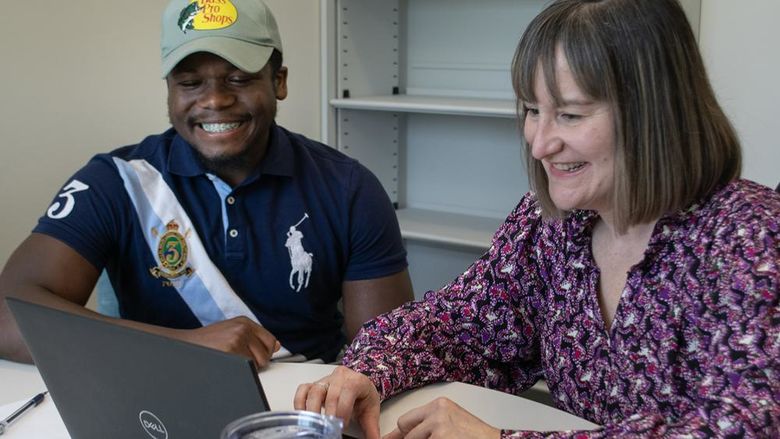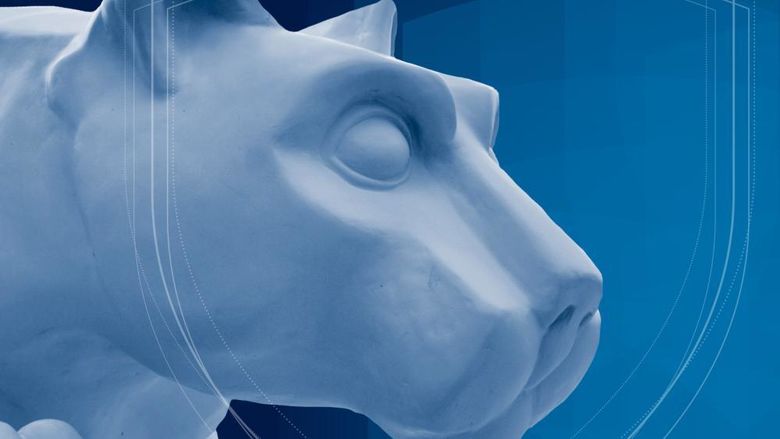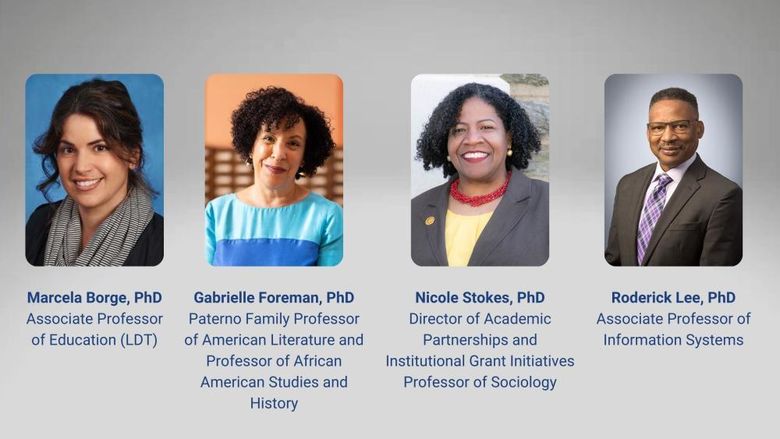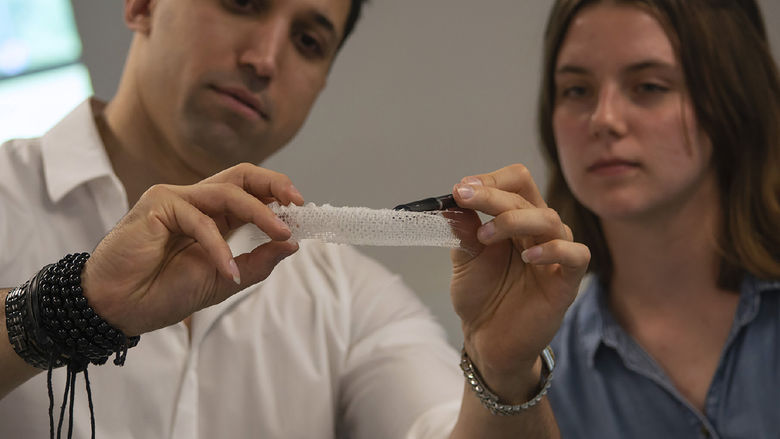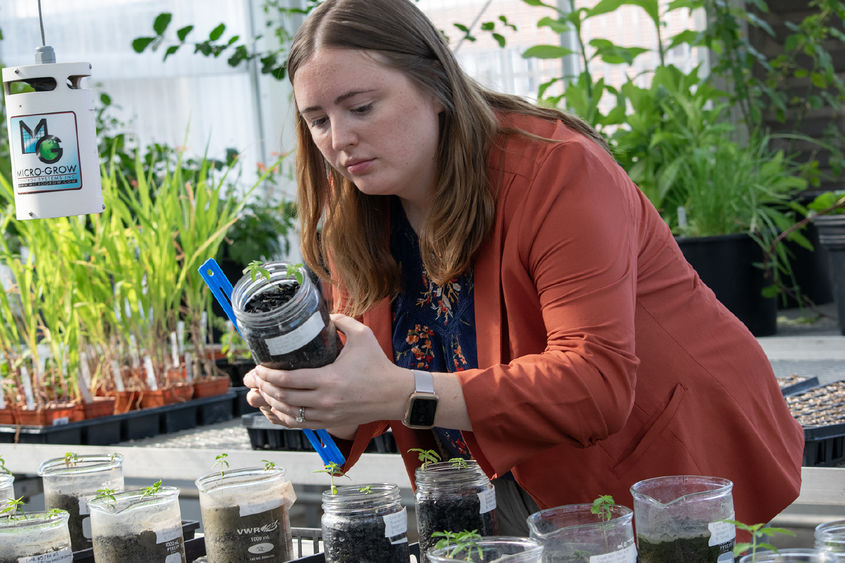
Through the the Synthetic and Systems Biology Research Experience for Teachers (BIORETs) program, Rebecca Torres, a teacher at Milton Hershey School, worked on a project with faculty members researching the best ways to grow industrial hemp in reclaimed mine land.
MIDDLETOWN, Pa., — Eight middle and high school teachers spent the summer working closely with Penn State Harrisburg faculty members on research projects, gaining skills and experience they will now take back to their classrooms.
The Synthetic and Systems Biology Research Experience for Teachers (BIORETs) program, offered for the first time at Penn State Harrisburg this summer, provides research training to secondary science teachers in underserved school districts.
The program, with funding from the National Science Foundation, BIORETS program to Sairam Rudrabhatla, principal investigator, is a partnership between faculty in the college’s School of Science, Engineering and Technology and Penn State’s Center for Science and the Schools (CSATS).
Teachers who participated were paired with Penn State Harrisburg faculty members for research on various topics including CRISPR/Cas9 genome editing; plant tissue culture and transformation; bioinformatics; and more.
Faculty participants were Sairam Rudrabhatla, professor of biology; Shobha Rudrabhatla, associate teaching professor of biology; Anil Attaluri, associate professor of mechanical engineering; Aldo Morales, professor of electrical engineering; Abu Asaduzzaman, associate professor of chemistry; and Nik Tsotakos, assistant professor of biology.
“The goal is to engage teachers in authentic research experiences in the summer and allow them to gain access to the practices that scientists and engineers use to do their work,” said Tiffany Lewis, STEM outreach education specialist with CSATS. “And to help them understand the dynamic nature of science — that it’s not just this static body of facts that we are delivering to students.”
Rebecca Torres, who teaches 10th grade biology at Milton Hershey School, worked with Sairam Rudrabhatla researching the best ways to grow industrial hemp in reclaimed mine land. She worked to test what soil additives might maximize industrial hemp plant growth in abandoned land mine soil.
Torres, who had some previous lab experience as an undergraduate student, said she wanted to participate in the program “to get the hands-on lab experience.”
Students respond to seeing their teacher do research, Torres said. She participated in another Research Experience for Teachers (RET) program last summer at University Park and hung her completed research poster in her classroom, drawing respect and awe from her students.
“It increased their engagement,” she said. “They knew they were doing real science because I had done real science.”
Participating in active research projects equips the teachers with current and increased science content and pedagogical knowledge that would help them implement curriculum and instruction aligned to higher standards of content and deeper learning goals. It also creates collaboration among the teachers and with the Penn State Harrisburg STEM faculty, Shobha Rudrabhatla said.
“This RET program is very exciting for them since it allows them to learn how scientists work and how the undergraduate students are trained to be future scientists in our lab,” she said.
Zonnelle Hanley, a teacher from Florida, worked with Nik Tsotakos, assistant professor of biology, on research aimed at testing the effects of cannabinoid products on human kidney epithelial cells. They treated cells — some healthy, some mimicking diabetic conditions — with different doses of cannabinoid treatments to see how the cells responded.
Hanley, too, said she sought out a research experience because she didn’t have much of it as a student herself.
“It’s making me really think about the importance of research and understanding the methodologies and why certain protocols are done,” she said. “The scientific practices are very similar to what we are trying to do in the classroom with students.”
In August, the teachers presented their research in an online gathering as a conclusion to the program.
“I believe a quality STEM education can help bridge gaps for underrepresented groups in science, technology, engineering and math,” said Sairam Rudrabhatla, professor of biology and director of the Central PA Laboratory for Biofuels and principal investigator for BIORETs. “Having K-12 teachers participate in active research enhances their scientific knowledge and helps in translating back into their own classrooms through renewed curricula and updated or improved classroom STEM activities.”
